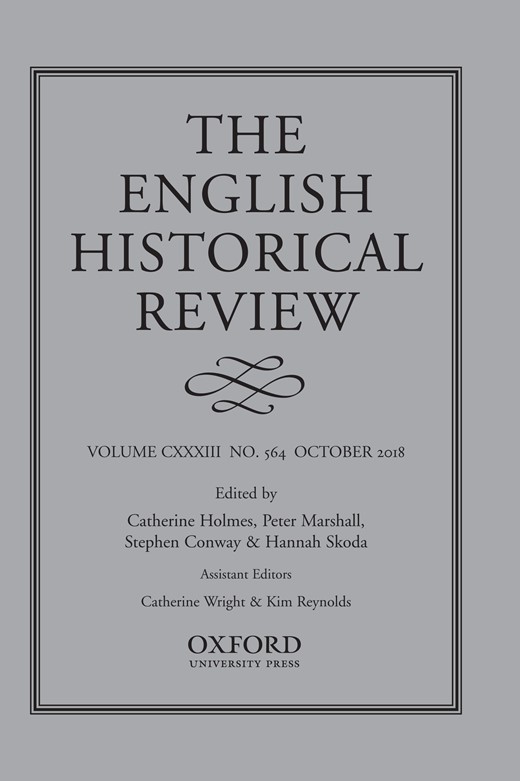-
Views
-
Cite
Cite
Henrice Altink, Surviving Slavery in the British Caribbean, by Randy M. Browne, The English Historical Review, Volume 133, Issue 564, October 2018, Pages 1334–1335, https://doi.org/10.1093/ehr/cey258
Close - Share Icon Share
Extract
In 1803, the British took control of the Dutch colony Berbice, which is one of the best-documented slave societies in the Americas, as enslaved people in this colony had the right (under both Dutch and British rule) to launch a complaint against their owner, free people and even fellow slaves before a protector of slaves. This generated thousands of near verbatim testimonies of slaves, free people and white owners, managers and overseers. Randy M. Browne is one of the few historians who have to date mined this material to shed light on the lives of enslaved people in the British Caribbean. Focusing on the period of British rule, and in particular the years after 1824 when the British government tried to reform slavery (which it was particularly able to do in Crown Colonies such as Berbice), Browne acknowledges that this material is not unproblematic. Relatively few slaves went to a protector to complain as they needed an opportunity to leave the plantation, which was easier for skilled and house slaves than field slaves. Enslaved people usually only complained when they felt that they had a good chance that their complaint would be upheld, and many were dissuaded from complaining because the protector could fine or punish slaves whom he thought had lied. Furthermore, slave testimonies were shaped by the judicial process, which meant that in some cases enslaved people would lie if they thought this would lead to a good outcome.



